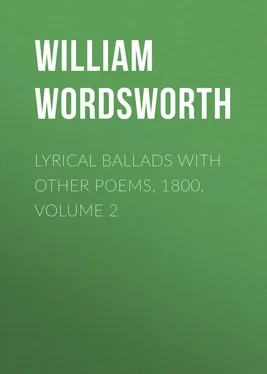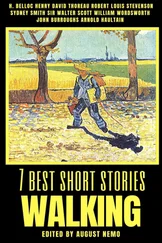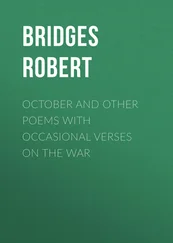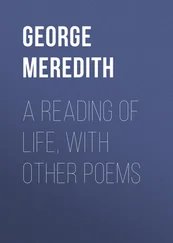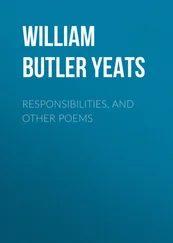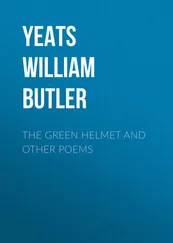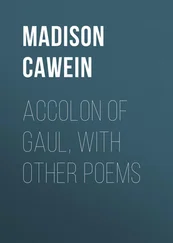William Wordsworth - Lyrical Ballads with Other Poems, 1800, Volume 2
Здесь есть возможность читать онлайн «William Wordsworth - Lyrical Ballads with Other Poems, 1800, Volume 2» — ознакомительный отрывок электронной книги совершенно бесплатно, а после прочтения отрывка купить полную версию. В некоторых случаях можно слушать аудио, скачать через торрент в формате fb2 и присутствует краткое содержание. Жанр: literature_19, Поэзия, foreign_prose, foreign_poetry, на английском языке. Описание произведения, (предисловие) а так же отзывы посетителей доступны на портале библиотеки ЛибКат.
- Название:Lyrical Ballads with Other Poems, 1800, Volume 2
- Автор:
- Жанр:
- Год:неизвестен
- ISBN:нет данных
- Рейтинг книги:4 / 5. Голосов: 1
-
Избранное:Добавить в избранное
- Отзывы:
-
Ваша оценка:
- 80
- 1
- 2
- 3
- 4
- 5
Lyrical Ballads with Other Poems, 1800, Volume 2: краткое содержание, описание и аннотация
Предлагаем к чтению аннотацию, описание, краткое содержание или предисловие (зависит от того, что написал сам автор книги «Lyrical Ballads with Other Poems, 1800, Volume 2»). Если вы не нашли необходимую информацию о книге — напишите в комментариях, мы постараемся отыскать её.
Lyrical Ballads with Other Poems, 1800, Volume 2 — читать онлайн ознакомительный отрывок
Ниже представлен текст книги, разбитый по страницам. Система сохранения места последней прочитанной страницы, позволяет с удобством читать онлайн бесплатно книгу «Lyrical Ballads with Other Poems, 1800, Volume 2», без необходимости каждый раз заново искать на чём Вы остановились. Поставьте закладку, и сможете в любой момент перейти на страницу, на которой закончили чтение.
Интервал:
Закладка:
The Priest here ended —
The Stranger would have thank'd him, but he felt
Tears rushing in; both left the spot in silence,
And Leonard, when they reach'd the church-yard gate,
As the Priest lifted up the latch, turn'd round,
And, looking at the grave, he said, "My Brother."
The Vicar did not hear the words: and now,
Pointing towards the Cottage, he entreated
That Leonard would partake his homely fare:
The other thank'd him with a fervent voice,
But added, that, the evening being calm,
He would pursue his journey. So they parted.
It was not long ere Leonard reach'd a grove
That overhung the road: he there stopp'd short,
And, sitting down beneath the trees, review'd
All that the Priest had said: his early years
Were with him in his heart: his cherish'd hopes,
And thoughts which had been his an hour before.
All press'd on him with such a weight, that now,
This vale, where he had been so happy, seem'd
A place in which he could not bear to live:
So he relinquish'd all his purposes.
He travell'd on to Egremont; and thence,
That night, address'd a letter to the Priest
Reminding him of what had pass'd between them.
And adding, with a hope to be forgiven,
That it was from the weakness of his heart,
He had not dared to tell him, who he was.
This done, he went on shipboard, and is now
A Seaman, a grey headed Mariner.
ELLEN IRWIN,
Or the BRAES of KIRTLE . 4 4 The Kirtle is a River in the Southern part of Scotland, on whose banks the events here related took place.
Fair Ellen Irwin, when she sate
Upon the Braes of Kirtle,
Was lovely as a Grecian Maid
Adorn'd with wreaths of myrtle.
Young Adam Bruce beside her lay,
And there did they beguile the day
With love and gentle speeches,
Beneath the budding beeches.
From many Knights and many Squires
The Brace had been selected,
And Gordon, fairest of them all,
By Ellen was rejected.
Sad tidings to that noble Youth!
For it may be proclaim'd with truth,
If Bruce hath lov'd sincerely,
The Gordon loves as dearly.
But what is Gordon's beauteous face?
And what are Gordon's crosses
To them who sit by Kirtle's Braes
Upon the verdant mosses?
Alas that ever he was born!
The Gordon, couch'd behind a thorn,
Sees them and their caressing,
Beholds them bless'd and blessing.
Proud Gordon cannot bear the thoughts
That through his brain are travelling,
And, starting up, to Bruce's heart
He launch'd a deadly jav'lin!
Fair Ellen saw it when it came,
And, stepping forth to meet the same,
Did with her body cover
The Youth her chosen lover.
And, falling into Bruce's arms,
Thus died the beauteous Ellen,
Thus from the heart of her true-love
The mortal spear repelling.
And Bruce, as soon as he had slain
The Gordon, sail'd away to Spain,
And fought with rage incessant
Against the Moorish Crescent.
But many days and many months,
And many years ensuing,
This wretched Knight did vainly seek
The death that he was wooing:
So coming back across the wave,
Without a groan on Ellen's grave
His body he extended,
And there his sorrow ended.
Now ye who willingly have heard
The tale I have been telling,
May in Kirkonnel church-yard view
The grave of lovely Ellen:
By Ellen's side the Bruce is laid,
And, for the stone upon his head,
May no rude hand deface it,
And its forlorn 'Hic jacet'.
Strange fits of passion I have known, &c
Strange fits of passion I have known,
And I will dare to tell,
But in the lover's ear alone,
What once to me befel.
When she I lov'd, was strong and gay
And like a rose in June,
I to her cottage bent my way,
Beneath the evening moon.
Upon the moon I fix'd my eye,
All over the wide lea;
My horse trudg'd on, and we drew nigh
Those paths so dear to me.
And now we reach'd the orchard plot,
And, as we climb'd the hill,
Towards the roof of Lucy's cot
The moon descended still.
In one of those sweet dreams I slept,
Kind Nature's gentlest boon!
And, all the while, my eyes I kept
On the descending moon.
My horse mov'd on; hoof after hoof
He rais'd and never stopp'd:
When down behind the cottage roof
At once the planet dropp'd.
What fond and wayward thoughts will slide
Into a Lover's head —
"O mercy!" to myself I cried,
"If Lucy should be dead!"
SONG
She dwelt among th' untrodden ways
Beside the springs of Dove,
A Maid whom there were none to praise
And very few to love.
A Violet by a mossy stone
Half-hidden from the Eye!
– Fair, as a star when only one
Is shining in the sky!
She liv'd unknown, and few could know
When Lucy ceas'd to be;
But she is in her Grave, and Oh!
The difference to me.
A slumber did my spirit seal, &c
A slumber did my spirit seal,
I had no human fears:
She seem'd a thing that could not feel
The touch of earthly years.
No motion has she now, no force
She neither hears nor sees
Roll'd round in earth's diurnal course
With rocks and stones and trees!
The WATERFALL and the EGLANTINE
"Begone, thou fond presumptuous Elf,
Exclaim'd a thundering Voice,
Nor dare to thrust thy foolish self
Between me and my choice!"
A falling Water swoln with snows
Thus spake to a poor Briar-rose,
That all bespatter'd with his foam,
And dancing high, and dancing low,
Was living, as a child might know,
In an unhappy home.
"Dost thou presume my course to block?
Off, off! or, puny Thing!
I'll hurl thee headlong with the rock
To which thy fibres cling."
The Flood was tyrannous and strong;
The patient Briar suffer'd long,
Nor did he utter groan or sigh,
Hoping the danger would be pass'd:
But seeing no relief, at last
He venture'd to reply.
"Ah!" said the Briar, "Blame me not!
Why should we dwell in strife?
We who in this, our natal spot,
Once liv'd a happy life!
Конец ознакомительного фрагмента.
Текст предоставлен ООО «ЛитРес».
Прочитайте эту книгу целиком, купив полную легальную версию на ЛитРес.
Безопасно оплатить книгу можно банковской картой Visa, MasterCard, Maestro, со счета мобильного телефона, с платежного терминала, в салоне МТС или Связной, через PayPal, WebMoney, Яндекс.Деньги, QIWI Кошелек, бонусными картами или другим удобным Вам способом.
1
This Poem was intended to be the concluding poem of a series of pastorals, the scene of which was laid among the mountains of Cumberland and Westmoreland. I mention this to apologise for the abruptness with which the poem begins.
Читать дальшеИнтервал:
Закладка:
Похожие книги на «Lyrical Ballads with Other Poems, 1800, Volume 2»
Представляем Вашему вниманию похожие книги на «Lyrical Ballads with Other Poems, 1800, Volume 2» списком для выбора. Мы отобрали схожую по названию и смыслу литературу в надежде предоставить читателям больше вариантов отыскать новые, интересные, ещё непрочитанные произведения.
Обсуждение, отзывы о книге «Lyrical Ballads with Other Poems, 1800, Volume 2» и просто собственные мнения читателей. Оставьте ваши комментарии, напишите, что Вы думаете о произведении, его смысле или главных героях. Укажите что конкретно понравилось, а что нет, и почему Вы так считаете.
